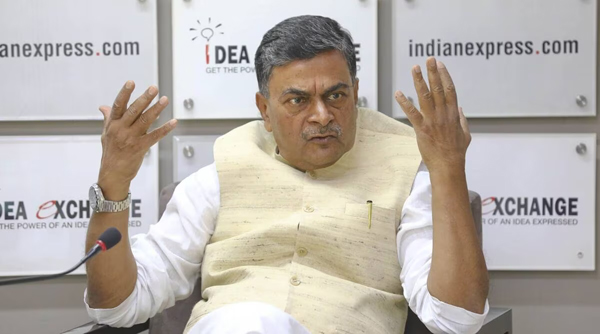NEW DELHI, Nov 14: Union Power and New & Renewable Energy Minister R K Singh on Tuesday said India will not compromise on meeting growing energy demands of the Indian economy, but will develop generation capacity with responsibility.
Addressing an inauguration of a power pavilion set up by Ministry of Power at the ongoing India International Trade Fair 2023 here, he said it is the developed countries who need to cut down their emissions first.
The minister spoke about India’s position in the wake of the upcoming COP28, the 2023 United Nations Climate Change Conference.
Singh said it is the developed countries who need to cut down their emissions first.
“Around 85 per cent of the carbon dioxide load in the atmosphere is due to the path of industrialisation followed by developed countries. India’s population is 17 per cent of the world population, while our contribution to carbon dioxide load is only 3.5 per cent.”
Even now, our per capita emissions are one-third of world average, while that of developed countries is three times the world average, he said.
The developed countries used fossil fuels for developing their economies but they want to tell us that we should not use coal, he noted.
“It is the developed countries that need to cut down their emissions first,” he said.
Singh emphasised that India is not going to make any compromise on the electricity needs for a growing (Indian) economy. We need to develop. At the same time, we will do that responsibly.
“We were nine years ahead in achieving the Nationally Determined Contributions (NDC) target of having 40 per cent of installed power capacity from non-fossil-fuel sources by 2030,” he said.
“We pledged at COP-21 in 2015 that we will reduce our emissions intensity by 33 per cent by 2030; we did this by 2019,” he said.
So, in Glasgow, we have said by 2030, we will have 50 per cent of our capacity from renewables and that we will reduce our emission intensity by 45 per cent, he said.
“We will achieve it. So, we are on target,” Singh added.
The availability of power in rural areas is now 21 hours and in urban areas, it is 23.5 hours, he stressed. (PTI)
Trending Now
E-Paper


